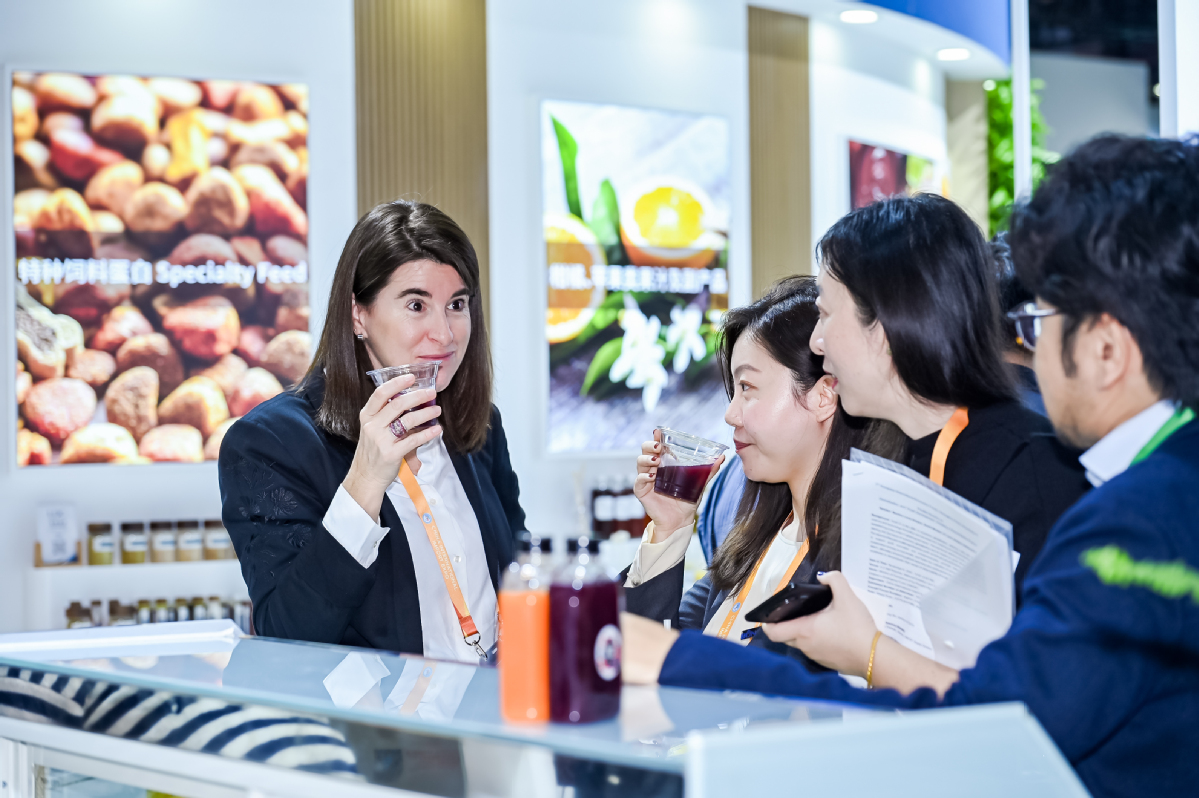LDC banks on new unit in Qingdao for growth in China


Louis Dreyfus Company, a multinational trader and processor of agricultural commodities, begins construction of a new food technology park in Qingdao, Shandong province on Thursday, and plans to further deepen its downstream presence in China, its senior executives said.
As China's middle-income group continues to expand and the country rolls out policies to boost domestic demand and drive consumption upgrades, they said that LDC has clearly seen the nation evolving into a dynamic consumer market characterized by diverse needs and significant growth potential.
"The new facility is another significant development in LDC's growth journey in the country and underlines the group's long-term commitment to the Chinese market," said Jerrity Chen, head of North Asia at LDC, which is headquartered in Rotterdam, the Netherlands.
Operations at this park will include oilseeds crushing, processing of specialty feed proteins and products, as well as production of food-grade lecithin. The site is scheduled to be operational in 2027 and will have the capacity to produce 1.5 million metric tons of feed protein, 370,000 tons of refined oil and 15,000 tons of lecithin annually.
Moreover, LDC has invested in a specialty feed production line in Tianjin to produce fermented soybean meal, aimed at improving animal health and growth performance. This initiative is intended to support higher-quality and more efficient livestock and poultry farming. The facility is expected to begin operations in the second half of this year.
"China's steady growth, predictable policy environment, pro-business initiatives and vast consumer market potential have all strengthened our determination and confidence to continue increasing our investment in the country and grow alongside it," Chen said.
Michael Gelchie, CEO of LDC, said the group will continue to extend further downstream to achieve diversified growth by offering high-quality, value-added products that meet the evolving needs of Chinese consumers, such as premium sources of protein and nutritious dietary options.
This goal will be realized primarily by enhancing the company's research and development capabilities and strengthening its capacity for processing and producing high value-added products, Gelchie said.
"We are seeing strong and growing demand for high-quality proteins, as China's per capita meat consumption continues to rise in tandem with the country's economic development, rising incomes and rapid urbanization," he said, adding this growth has fueled an expanding animal feed market in China and the company is committed to meeting that demand.
Under its plan, LDC, backed by more than 19,000 employees globally, will also reinforce its core business — the trading and marketing of key commodities such as corn, soybeans and coffee — through strategic investments and partnerships in China.
Highlighting that local innovation is another key element of the group's downstream strategy, Gelchie said that LDC's global research and development center in Shanghai, which was established in 2023, has made solid progress, with research outcomes now being applied to industrial-scale production.
"Given the scale of China's agricultural demand, international collaboration is essential to ensure stable supply, promote sustainable farming practices and support the country's evolving consumption patterns," said Bai Ming, a researcher at the Chinese Academy of International Trade and Economic Cooperation in Beijing.
China will continue to see rising consumer demand for premium, healthy and diversified agricultural products and its agricultural trade patterns will be further optimized through deeper global supply chain integration in the years ahead, according to the China Agricultural Outlook Report (2025-34) released by the Ministry of Agriculture and Rural Affairs in April.




































